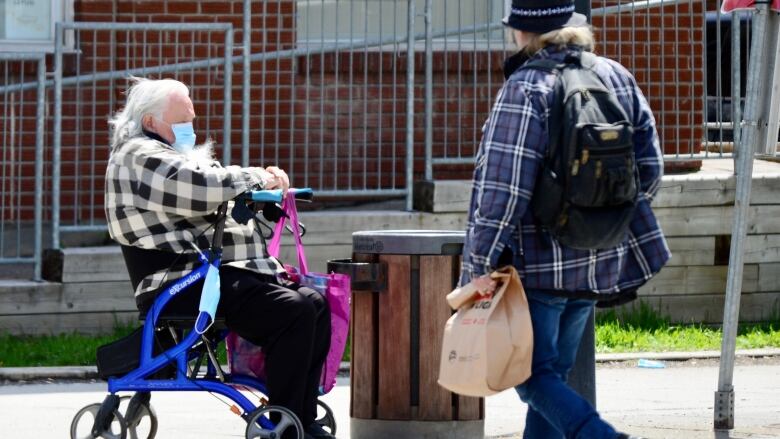Chronic homelessness up 34% since November in Waterloo region
Not enough supportive housing units, says manager of homelessness prevention

The Region of Waterloo says the number of individualsexperiencing chronic homelessness has risen 34 per cent since the fall.
On Nov. 1,2020, there were 271 people experiencing chronic homelessness.As of May 1, 2021, there were365.
Driving the increase is a lack of supportive housing for people with mental illness and addiction, said Chris McEvoy.
"That's where the need is in our community," said McEvoy, the region's manager of housing policy and homelessness prevention.
Someone experiencing chronic homelessnesshas been without a residence for six months or more in the last year, or for 1years in the last three.
The Canadian Mental Health Association (CMHA) said it's also aware of a high level of demand for supportive housing.
Across Waterloo-Wellington, the CMHA said its average wait time for long-term mental health supportive housing is 1,093 days. The association said it is aware of 983 people waiting for this type of housing.
More supportive housing in the works
McEvoy noted some of the uptick in the region's numbers could alsobe due to people who have been without a home for a while, but who have only recently been connected with social services.
"Folks may have not wanted to go into a congregate environment previously and may have opted for an experience of unsheltered homelessness.
"Now, with some of the use of hotels and motels as overflow spaces, or in some cases the default shelter option, they may be more inclined to access service."
People who are chronically homeless may be living in a mix of different locations, he said, from shelter spaces to motel rooms to Kitchener's A Better Tent City.
There may be more people still who are among the "hidden homeless" and are not captured in the region's latest numbers, he said. Updated numbers are expected during a point-in-time count set for September.
McEvoy said while he's concerned about the present situation, hebelieves the challenge of getting those 365 households into housing is "not insurmountable."
He pointed tofour supportive housing projects that have been given the go-aheadthis year. Over the next five years, the region has said, it plans to create up to 2,500 affordable housing units total.
"We have the right system in place and we are investing to create new units, so I am ever hopeful," said McEvoy.












_(720p).jpg)


 OFFICIAL HD MUSIC VIDEO.jpg)
.jpg)



























































































